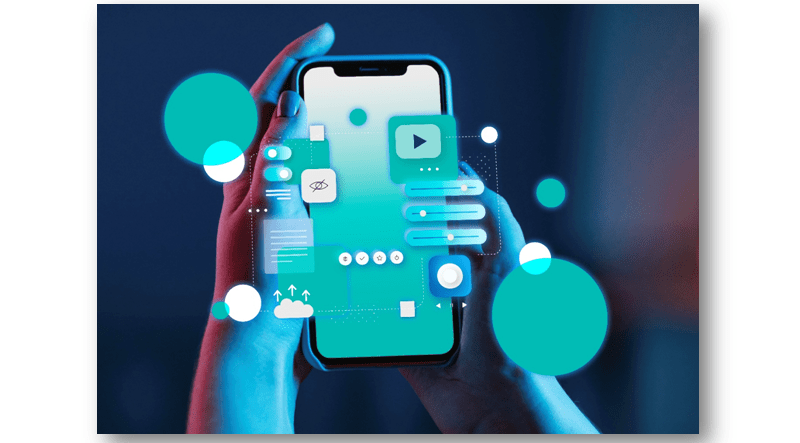
Travel apps have made it possible for people to go on trips without depending on expensive travel agents. There’s an app for everything these days, from booking cheap flights and cabs to reserving beach-side hotel rooms.
Customers are benefiting plenty from such apps, but so are people in the hospitality business. So, if you own a hotel or simply want fellow travelers to experience hassle-free booking, hotel booking app development services will help you attract more guests.
What a Hotel Booking App Does
Hotel booking apps are designed to help guests reserve the dates and rooms of their choice for their stay. They typically have an interface showing customers the hotel’s real-time room rates and details across all booking channels. These apps also have an online payment portal to finalize and manage reservations.
The app’s property management system (PMS) is updated every time a transaction occurs, and changes are reflected on different channels accordingly. Let’s look at the following step-by-step breakdown of the hotel reservation process:
- This system allows guests to enter their desired reservation dates and the number of people they plan to check in and out with.
- As soon as the system confirms the availability of the different hotel room types and the guest’s indicated visit dates, it displays the available rates.
- Guests must enter their name, phone number, and payment details into the system at this point. They can go over the hotel’s specific offerings and choose according to their preferences. For instance, they may ask for a room with a view or a specific location.
- The system automatically updates the hotel’s PMS with the updated room inventory once the booking is confirmed. An automatic confirmation number is generated and sent to the guest’s email id as well.
Types of Hotel Booking Apps Available At Present
Hotel apps are growing in number as well as the variety of features they provide to customers. The ones explained below
1. Comprehensive Accommodation Search Apps
Apps that provide a complete booking experience are among the most preferred ones at present. These apps aim to provide users with a wide range of choices when it comes to finding the perfect place to stay. They aggregate information from various hotel booking platforms and display comprehensive details about accommodations, including prices, amenities, location, and user reviews. Booking.com is an excellent example of an overall hotel app.
Developing an app that offers comprehensive searches for accommodation allows you to offer users a convenient platform to compare different hotels. Such apps often include detailed search options for users to filter results based on their preferences, and make informed decisions. Features such as real-time availability, price alerts, and interactive maps will be useful to integrate into apps like these. They can enhance the user experience and set your app apart from the competition.
2. Niche Hotel Booking Apps
While comprehensive accommodation search apps cater to a broad audience, niche hotel booking apps focus on specific segments or travel preferences. These apps target users who have particular interests or requirements when it comes to their accommodations. Some examples of niche hotel booking apps include:
3. Luxury Hotel Booking Apps
Luxury hotel booking apps cater to users seeking high-end accommodations and exclusive experiences. These apps curate a selection of luxury hotels worldwide, providing users with access to premium amenities, personalized services, and unique packages.
However, developing a luxury hotel booking app requires establishing partnerships with luxury hotel chains and integrating features that reflect the opulence and sophistication of the target audience. HoteLux would be a great example of a luxury hotel reservation app.
4. Budget Hotel Booking Apps
On the other end of the spectrum, budget hotel booking apps cater to cost-conscious travelers looking for affordable accommodations. These apps focus on displaying budget-friendly options, including hostels, budget hotels, and discounted rates from established hotel chains.
Integrating user reviews, location-based searches, and secure payment options can help attract budget-conscious travelers to your app. You may want to explore apps like Hotels.com to understand how cheap hotel booking apps work.
5. Boutique Hotel Booking Apps
Boutique hotel booking apps target users who prefer intimate and stylish accommodations over large chain hotels. These apps curate a collection of boutique hotels known for their unique designs, personalized services, and immersive experiences.
Your app can attract users seeking memorable stays at charming establishments by showcasing the distinctive features of each boutique hotel and offering exclusive deals. However, you will have to explain these features to the professionals you hire for hotel booking app development services.
6. Last-Minute Hotel Booking Apps
These apps cater to spontaneous travelers or those facing unexpected changes in their itineraries. These apps specialize in providing real-time availability and attractive discounts for immediate bookings. Partnering with hotels that offer last-minute deals in your app can help travelers find affordable accommodations on short notice.
To ensure the success of a last-minute hotel booking app, focus on developing a user-friendly interface with a streamlined booking process. Push notifications and location-based services can also be integrated to notify users of nearby available rooms and time-limited offers. HotelTonight is a good example of a hotel booking app for last-minute stays.
7. Group Booking Apps
These target users planning trips with a larger number of people, such as families, corporate teams, or tour groups. They offer features that make group coordination easier, including booking multiple rooms, managing reservations, and communicating within the app.
Developing a group booking app requires well-designed, robust functionality to handle complex bookings. Secure payment systems and efficient communication channels for customer support are also essential. Group travelers have specific needs, such as discounted rates for bulk bookings or additional amenities. By addressing them, your app can become a go-to platform for organizing group trips.
Final Thoughts
The types of apps explained above will help you decide which market segment you want to target, and the app to build according to that. Have detailed discussions with your hotel booking app development team, so the goals are clear before you begin building the app. Progress will be faster and less prone to changes once everyone is aware of the specific type of app and user audience you’re aiming for.
You might also like our TUTEZONE section which contains exclusive tutorials on how you can make your life simpler using technology.
Author bio
Richard is an experienced mobile app developer at AppsChopper. He is familiar with the intricacies of programming and loves to explore new development trends.




